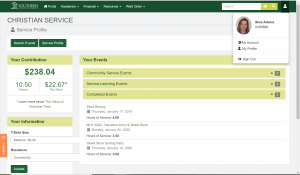Competency 7
Assess Individuals, Families, Groups, Organizations and Communities
Practice Behaviors
- Collect and organize data and apply critical thinking to interpret information from clients and constituencies.
- Apply knowledge of human behavior and the social environment, person-in-environment, and other multidisciplinary theoretical frameworks in the analysis of assessment data from clients and constituencies.
- Develop mutually agreed-on intervention goals and objectives based on the critical assessment of strengths, needs and challenges within clients and constituencies.
- Select appropriate intervention strategies based on the assessment, research knowledge and values and preferences of clients and constituencies.
Assessing individuals, families, groups, organizations and communities as a social worker means I will incorporate assessment skills into my interactions with clients and client families. I will work to learn the true needs of the clients and form goals and interventions based upon those needs to truly help the clients and client families. In becoming an ethical social worker, it is my goal to be intentional to collect and organize data and information and work to interpret the information. I will apply the knowledge that I have learned regarding human behavior and the social environment and I will work to develop goals and intervention methods based upon the information that I have acquired.
Evidence 1 (Class):
For one of my classes entitled, Social Work Practice with Individuals, I was able to practice my interviewing skills through doing short interviews with pseudo-clients. After doing an interview, I was able to complete a process recording of the interview to assess my skills, what went well, what could have gone better, and how I would fix it if I was to do it again. To read one of my process recordings, click here.
Evidence 2 (Field):
For my field practicum agency, DFCS in Catoosa County, I watched a lecture entitled “5 pieces of life changing advice”. After watching the lecture, I wrote a reaction assessing my field practicum agency to see how these concepts could be beneficial. This organization assessment included how it would be beneficial, what changes would have to be made to allow these changes to take place, and how these concepts could be implemented. To read the full journal entry, click here.
Evidence 3 (Additional):
For Martin Luther King day at Southern Adventist University, I got the opportunity to participate in street store in downtown Chattanooga with the red cross. I was able to interact with people experiencing homelessness and ask them questions to assess and figure out what their needs were. After I figured out what needs they had regarding clothing and food, I was able to work with the individuals and help them find clothing and ensure that they received food. This opportunity allowed me to engage my interviewing and assessment skills. See below for a screenshot of my Christian Service profile which shows the street store event as completed.
Skills Used:
For this competency, I used the skills of active listening, organization skills, critical thinking skills, empathy skills, and communication skills.
Knowledge Used:
For this competency, I used knowledge learned about how to assess individuals, families, groups, organizations and communities from classes such as Social Work Practice with Individuals, Social Work Practice with Groups and Families, and Social Work Practice with Organizations and Communities. For knowledge about assessing the community of Catoosa County for resources I used my field instructor as well as other case workers in the agency.
Values Present:
For this competency, the value of service was present as I was assessing different needs of people experiencing homelessness in order to determine how to best help them. The value of competence was also present as I assess my own skills to better myself and become more competent in different areas. Lastly, the values of social justice and dignity and worth of a person were present as I was assessing the community and making a resource list to be able to better serve clients recognizing that they deserve social justice with getting the resources they need as well as recognizing that they are important and worth making a resource list for.
Cognitive Processes Used:
For this competency, I was able to identify different resources within Catoosa County, practice my assessment skills through process recordings, develop a greater understanding for the needs of people experiencing homelessness and organize a document containing different resources within Catoosa County.
Affective Processes Used:
For this competency, I had to search different resources within Catoosa County and create a document containing these resources, sense the needs that the people experiencing homelessness had, and justify my assessment of my skills within the process recording.
Theoretical Foundation:
Symbolic Interaction Theory. This theory states that people choose their actions based upon the symbolic meanings that they see within any situation and that we base our actions towards other individuals based upon our assessment of the individual. Within social work, it is important to pay attention to the symbols and information that the clients give us during assessments. This information can help us to know how to respond and how to best help the client.
